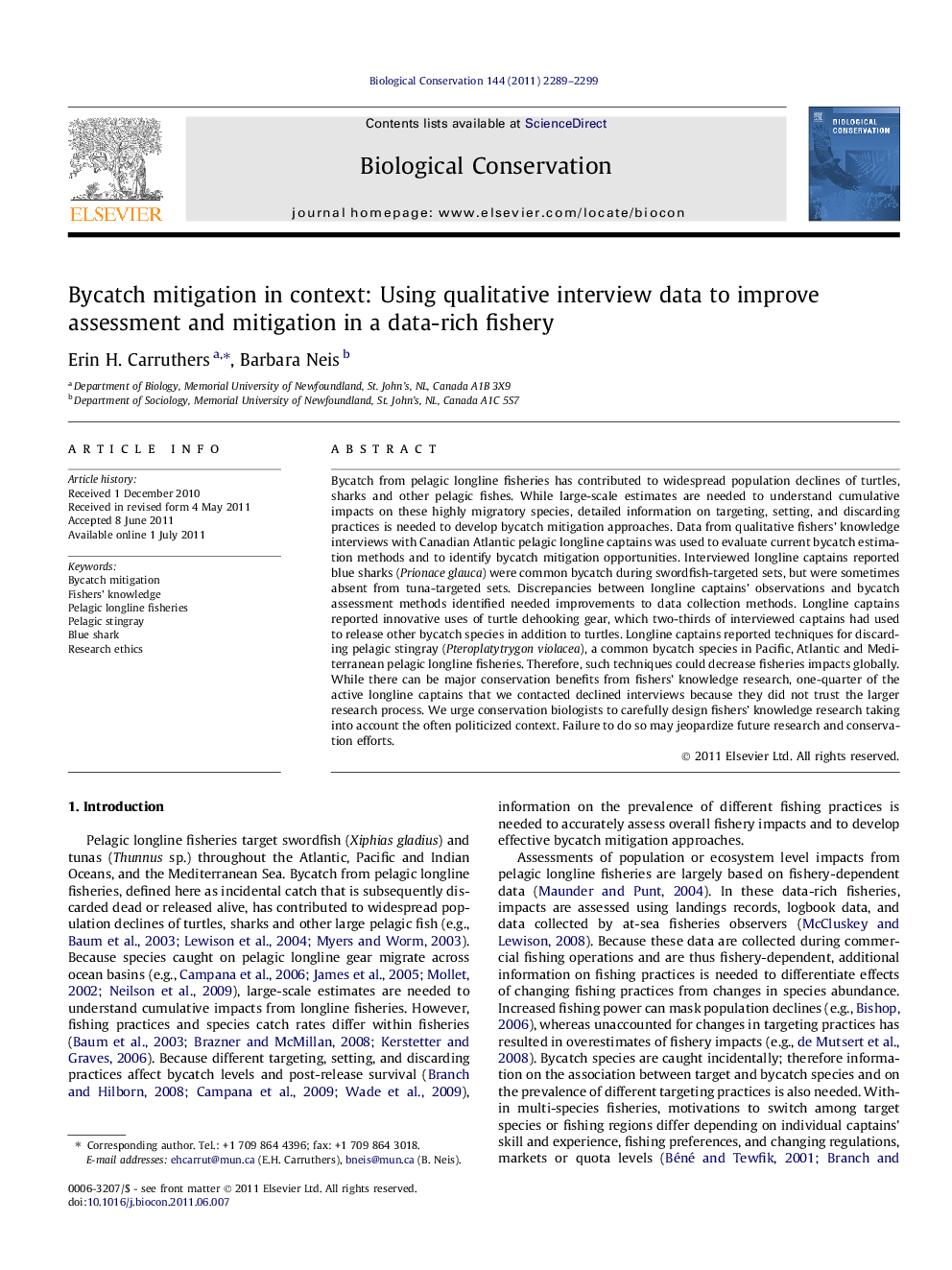| کد مقاله | کد نشریه | سال انتشار | مقاله انگلیسی | نسخه تمام متن |
|---|---|---|---|---|
| 4385550 | 1304541 | 2011 | 11 صفحه PDF | دانلود رایگان |

Bycatch from pelagic longline fisheries has contributed to widespread population declines of turtles, sharks and other pelagic fishes. While large-scale estimates are needed to understand cumulative impacts on these highly migratory species, detailed information on targeting, setting, and discarding practices is needed to develop bycatch mitigation approaches. Data from qualitative fishers’ knowledge interviews with Canadian Atlantic pelagic longline captains was used to evaluate current bycatch estimation methods and to identify bycatch mitigation opportunities. Interviewed longline captains reported blue sharks (Prionace glauca) were common bycatch during swordfish-targeted sets, but were sometimes absent from tuna-targeted sets. Discrepancies between longline captains’ observations and bycatch assessment methods identified needed improvements to data collection methods. Longline captains reported innovative uses of turtle dehooking gear, which two-thirds of interviewed captains had used to release other bycatch species in addition to turtles. Longline captains reported techniques for discarding pelagic stingray (Pteroplatytrygon violacea), a common bycatch species in Pacific, Atlantic and Mediterranean pelagic longline fisheries. Therefore, such techniques could decrease fisheries impacts globally. While there can be major conservation benefits from fishers’ knowledge research, one-quarter of the active longline captains that we contacted declined interviews because they did not trust the larger research process. We urge conservation biologists to carefully design fishers’ knowledge research taking into account the often politicized context. Failure to do so may jeopardize future research and conservation efforts.
► Qualitative fishers’ knowledge interviews were used to increase accuracy of bycatch assessments.
► Operational difficulties of and unintended impacts from proposed mitigation were detailed.
► Pelagic longline fishing captains reported innovative uses of bycatch mitigation tools.
► Fishers’ knowledge research on conservation issues must be cognizant of the research context.
Journal: Biological Conservation - Volume 144, Issue 9, September 2011, Pages 2289–2299